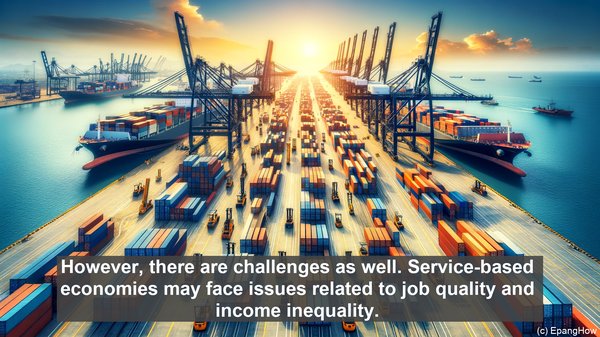Introduction: The Foundation of Economic Systems
Hello, everyone! When it comes to economic systems, there are various models that countries adopt. Today, we’ll be focusing on two prominent ones: resource-based economies and service-based economies. While both have their merits, they differ significantly in their core principles and functioning.
Resource-Based Economies: Harnessing Natural Wealth
Resource-based economies, as the name suggests, rely heavily on the exploitation and export of natural resources. These resources can range from minerals and fossil fuels to agricultural produce. Countries blessed with abundant resources often adopt this model, as it offers a direct avenue for economic growth. Think of nations with vast oil reserves or mineral-rich regions. By tapping into these resources, they can generate substantial revenue, which can then be invested in infrastructure, healthcare, and education, among other sectors.

The Pros and Cons of Resource-Based Economies
Resource-based economies have their advantages. Firstly, they often experience a surge in employment opportunities, as industries associated with resource extraction require a significant workforce. Additionally, the revenue generated from resource exports can bolster a nation’s GDP, leading to increased government spending. However, there are downsides as well. Resource-based economies can be vulnerable to market fluctuations. For instance, a sudden drop in commodity prices can severely impact a country’s economy, leading to budget deficits and unemployment. Moreover, the over-reliance on resources can hinder diversification, making the economy less resilient in the face of global changes.
Service-Based Economies: The Power of Expertise
On the other end of the spectrum, we have service-based economies. These economies prioritize the provision of services, such as finance, consulting, and technology, over the extraction of physical resources. Unlike resource-based economies, the wealth in service-based economies lies in the expertise and knowledge of its workforce. Think of financial hubs like New York or technology centers like Silicon Valley. These regions thrive not because of their natural resources, but because of the talent and innovation they attract. Service-based economies often have a strong emphasis on education and skill development, as a knowledgeable workforce is crucial for success in this model.

The Advantages and Challenges of Service-Based Economies
Service-based economies offer several advantages. Firstly, they are often more adaptable to market changes. As the demand for certain services evolves, these economies can quickly pivot and cater to new needs. Additionally, service-based industries are often less susceptible to price fluctuations compared to commodities. However, there are challenges as well. Service-based economies may face issues related to job quality and income inequality. While high-skilled professionals in sectors like finance may enjoy lucrative salaries, there can be a disparity when it comes to lower-skilled service jobs. Moreover, the intangible nature of services can make it challenging to measure their economic impact accurately.
The Global Economic Landscape: A Mix of Models
It’s important to note that in today’s interconnected world, most economies are not purely resource-based or service-based. Instead, they often exhibit a blend of both. For instance, a country may have a strong manufacturing sector, relying on resources, while also nurturing a thriving tech industry. This hybrid approach allows nations to leverage the benefits of both models, mitigating some of the risks associated with a singular focus. Additionally, the rise of the digital economy has further blurred the lines, with services like e-commerce and software development becoming integral to traditional industries.
